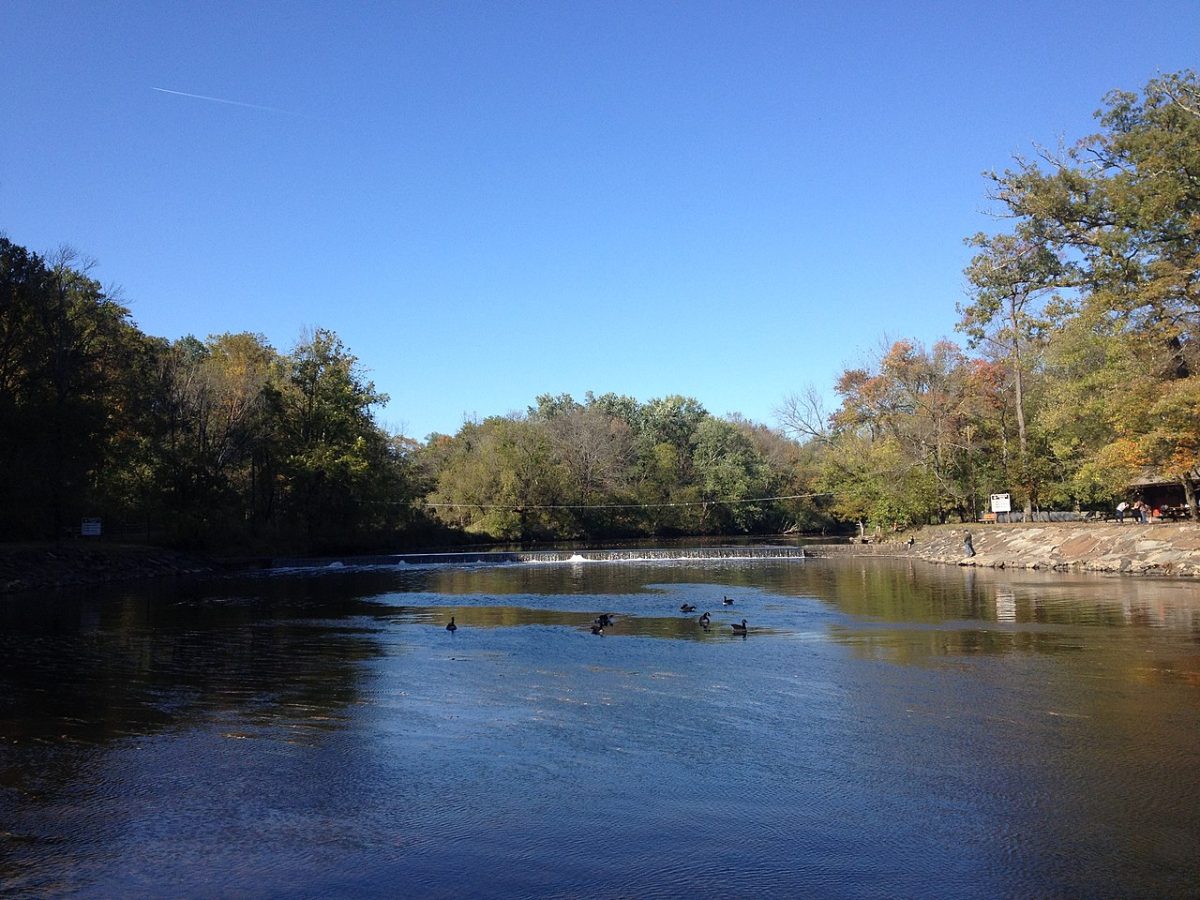Two Bucks professors continue to enrich the ecosystem of Tyler State Park by guiding their STEM students through multiple fieldwork opportunities involved with research projects that lead to paid internships.
Dr. Kathi Knight, professor of biology and environmental science, and Joann Corn, professor of biology, have always had an interest in STEM so it was not a hard decision to help enrich Tyler State Park. Knight and Corn have been working at Bucks for over 25 years, but before Bucks, they both worked at private firms engaging in research.
Fieldwork is an important part of science because science does not always happen in a lab or a controlled environment. The fieldwork is completed by students in specific classes during class hours and over the summer.
Corn has her Biological Principles II and Knight’s Introduction to Environmental Science and Principles of Ecology classes participate in the fieldwork. Allowing students to experience fieldwork better allows them to understand what it’s like to work in a career involved with the environment.
For those who would like to help out in the times not corresponding with class and semesters, Knight and Corn have students help them out over the summer in keeping these projects going. This also allows for students to gain experience and show motive in contributing to the school’s projects.
Knight stated, “Professor Corn and I work with the assistance of student ecological field assistants throughout the summer on the Meadow Restoration and Forest Restoration projects.”
These projects entail quite a large area of Tyler State Park.
“There are three meadow locations (a one-acre site, a half-acre site, and a 10-acre site) for a total of 11.5 acres. The one-acre meadow is where students identify plants in one-meter-by-one-meter sampling areas marked with flags along transect lines. The meadow is also used for bird and insect identification. Monarch butterfly caterpillars are counted and all adult butterflies are noted,” said Knight.
“Tyler State Park would like our 10-acre meadow to become their primary location for outdoor environmental education. The one-acre meadow and half-acre meadow are located along the Main Park Road and the 10-acre meadow is along Dairy Mill Trail.”
Dr. Knight adds, “This project began in 2016 and the sites were populated with a handful of invasive species. At the present time, the meadows have more than 60 different native pollinator species and provide bloom from early spring through summer and through fall.”
This next project allows students to get hands-on with forest restoration. They plant and maintain the area allowing the wanted specimens to survive and suppressing the unwanted while helping the wildlife needs and bettering the climate.
“The Covered Bridge Trail Forest Restoration is a total of five acres of forest restoration that includes an upland and a lowland area. More than 500 native trees and shrubs have been planted to date. Each semester, students plant more specimens and maintain the area to suppress unwanted vegetation. Tree and shrub species selected have high wildlife value and are long-lived to help mitigate the impacts of climate change,” explains Knight.
Along with both projects, a soil analysis is also run. They test several matters involving the soil to make sure it is still viable, monitoring fertility, pH, soil texture and organic matter.
A stream study is also run each semester to monitor the Neshaminy Creek allowing the students and professors to oversee the health of the stream. This study allows them to see the changes in the stream’s physical, chemical and biological parameters so they can determine the overall health and might be harming the stream.
“As a result of the hands-on field experiences in these classes, many of our Bucks students are able to procure paid internships within Bucks County and surrounding areas. The field opportunities and skills gained in these courses help to build strong resumes and students are well prepared for internship opportunities with government and private entities,” explains Knight.
Some of these internships include Bowman’s Hill Wildflower Preserve, Burpee Seeds, Honey Hollow Audubon, Bristol Marsh, Churchville Nature Center, Nockamixon State Park, Delaware Riverkeeper Network and Delaware River Basin Commission.
The programs are continuing to grow and expand while giving experience to the students allowing them to put worth a showcase of their abilities.
Knight says, “We expect that our efforts in Tyler State Park will continue for the long-term and students will broaden their hands-on experiences throughout their time at Bucks and these skills will be useful for students as they continue with their education and/or pursue employment.”


